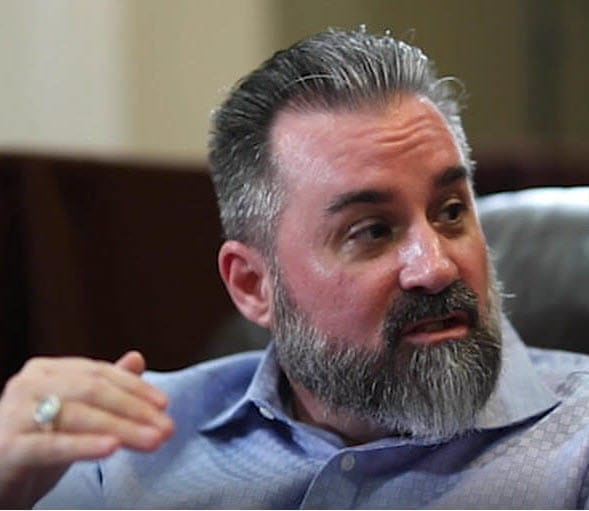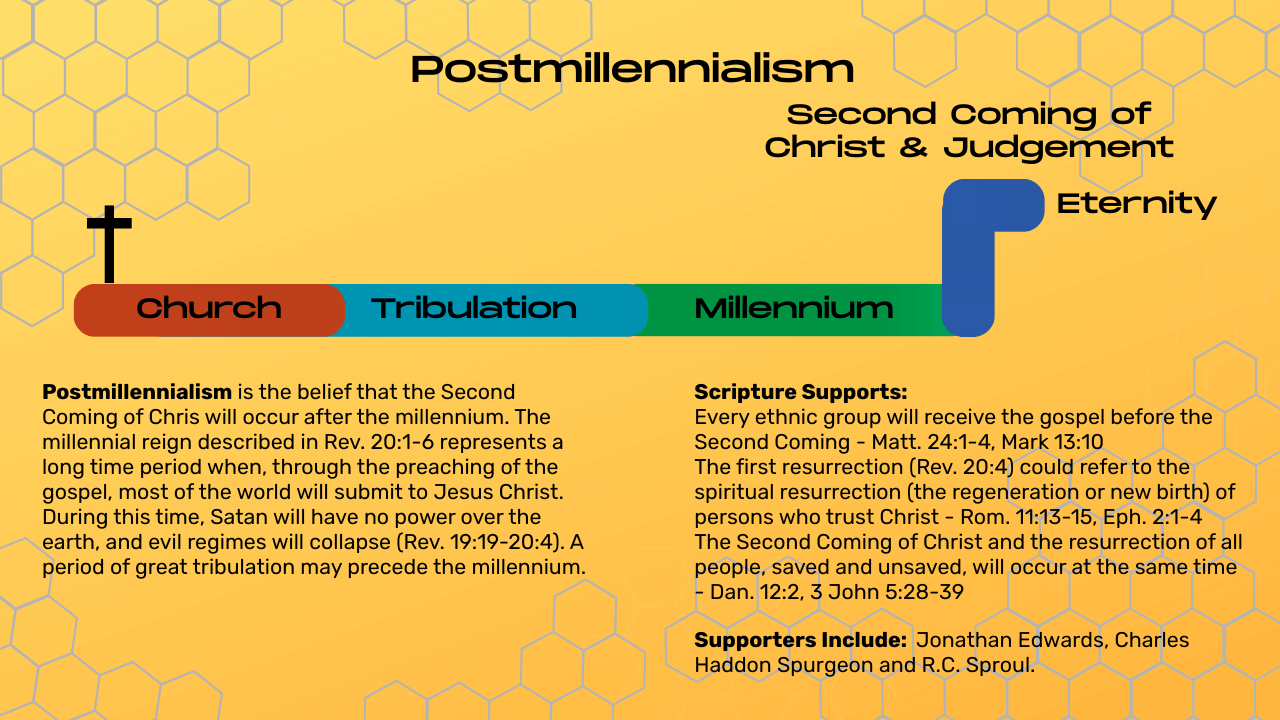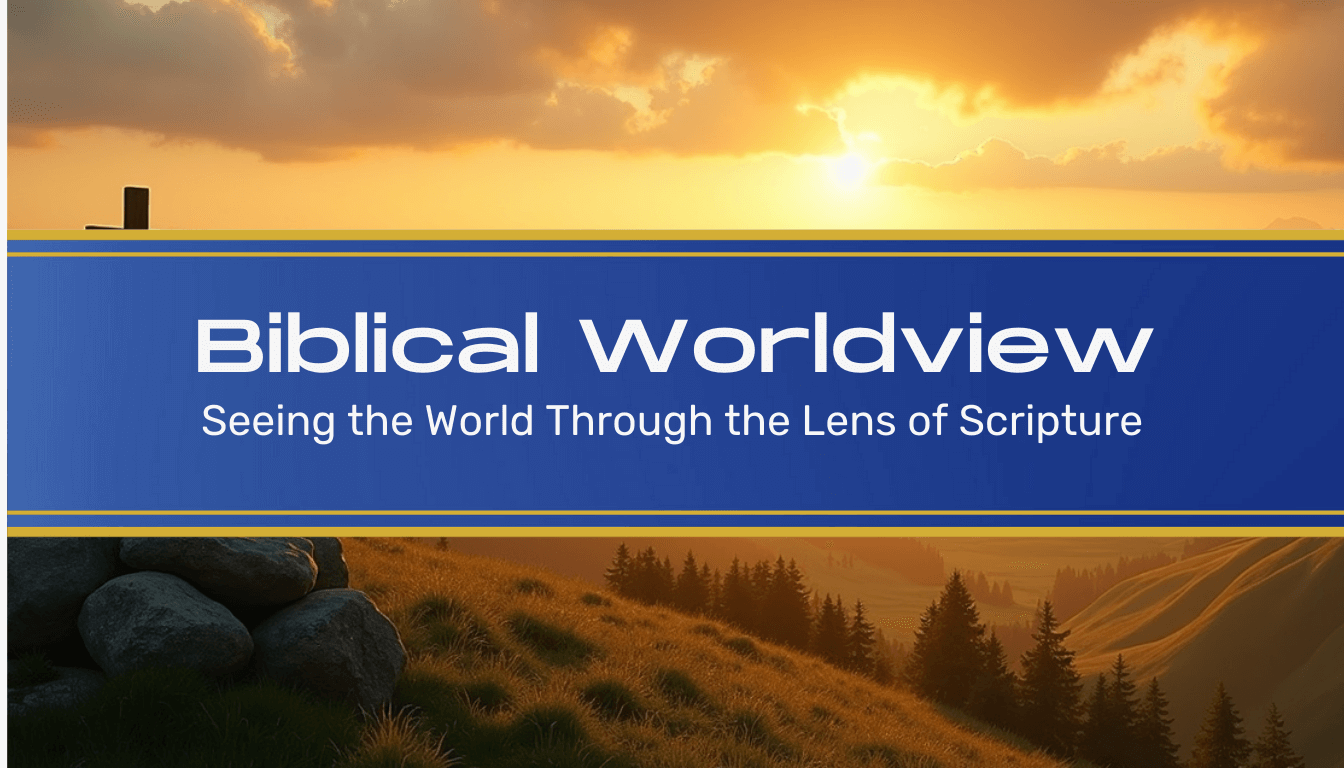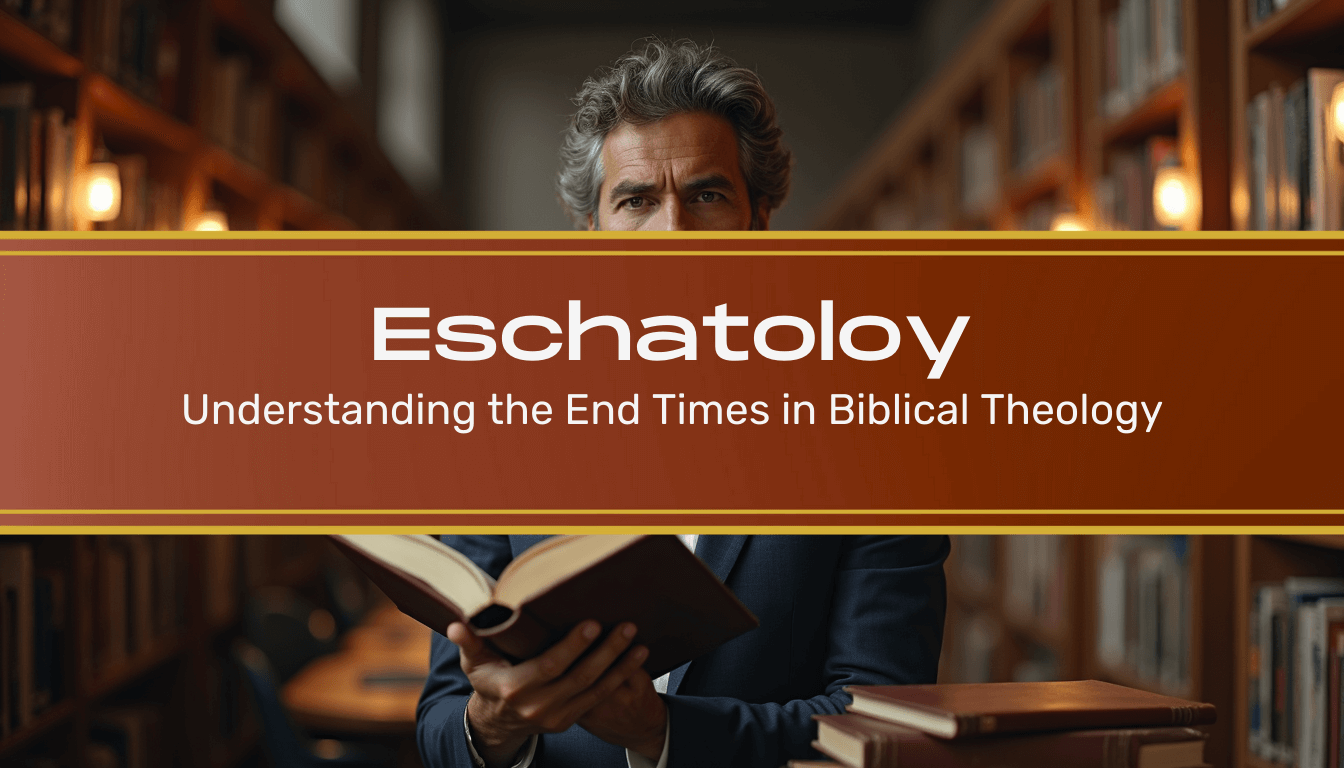
Postmillennialism
A Hopeful View of the End Times
Here's why postmillennialism pulls people in: they read the Great Commission and hear Jesus say, "Make disciples of all nations," and they take it seriously. They're tired of eschatologies that treat the church like a rescue boat evacuating a sinking ship instead of an advancing army reclaiming ground for the King. Micro-promise: Postmillennialism isn't naive optimism—it's the simple confidence that the Gospel works and that Christ's kingdom will expand through the church before His coming.
I'll be honest: part of me wants to believe the church can actually change the world. When Isaiah pictures nations turning swords into plowshares, and Jesus promises the gates of hell won't prevail against His church, postmillennialism dares us to take those promises at face value.
But a quick clarification: optimism about the Gospel's power is not the same as optimism about human progress. Postmillennialism doesn't claim humanity steadily improves on its own—it's that the Gospel gets more effective, over time, in transforming people, families, institutions, and whole nations.
So the real question isn't whether you're an optimist or pessimist by temperament. It's whether you believe the Gospel has the power to reshape cultures and societies—not just individual hearts—over the long haul.
Sharp Edge: If your eschatology makes you more excited about escaping the world than transforming it, you might have missed Jesus' prayer that His followers would be "in the world but not of the world"—not out of the world entirely.
What Postmillennialism Actually Teaches
The Millennium as a Long Golden Age
Postmillennialists read Revelation 20's "thousand years" not necessarily as a literal, fixed number but as a symbolic long period when Christian influence is widespread and relatively stable. Expect a season of significant Gospel success in which the church's reach and moral influence shape families, institutions, and nations.
Christ Returns After That Age
The "post" in postmillennialism means Christ's coming follows this era of growth. His return still marks the end of history and the inauguration of the eternal state, but it comes after the kingdom has advanced through the church rather than before.
The Church Advances the Kingdom
Postmillennialism puts confidence in the church's mission: faithful preaching, discipleship, and cultural engagement gradually change the world. This is cultural transformation by renewed hearts and institutions—not a raw political takeover. As people are converted, they influence families, schools, businesses, and eventually whole nations.
The Great Commission Is a Promise
Matthew 28:19–20 is treated as more than a command; it is a promise that the Gospel will reach the nations. Postmillennialists argue Jesus didn't give an impossible task—He promised to be with His people "to the end of the age," and so the church expects the Gospel to touch every people group over time.
How This Differs from Other Views
Unlike premillennialism, which expects Christ to return before a future thousand‑year reign, postmillennialism expects Christ after the reign. Unlike amillennialism, which typically rejects a distinct Millennium, postmillennialism anticipates a recognizable era of widespread Christian influence.
Concrete, Contemporary Examples
If that sounds abstract, think small and big: a Christian school that shapes generations in a town; a faith‑based hospital network improving health systems; or movements where missionary efforts have shifted social norms. These are the kinds of long‑term, institutional changes postmillennialists point to as signs the Gospel can transform cultures.
In short: postmillennialism is not wishful thinking about human progress. It's a historically grounded expectation that the Gospel, through the church's faithful work, will extend its power across time and space—into cities, nations, and the institutions that order life—until Christ returns.
Biblical Evidence Postmillennialists Cite
The Mustard Seed Principle
Jesus likened the kingdom to a mustard seed that becomes a large tree (Matthew 13:31–32). What it shows: the kingdom often begins small but grows steadily until it provides shelter for many—the image points to gradual, persistent expansion of the Gospel through the church.
The Leaven Principle
In Matthew 13:33 Jesus compares the kingdom to leaven working through dough. What it shows: the Gospel's influence can spread invisibly through social structures and cultures, eventually transforming whole communities (think: missionary efforts that change literacy, health care, or social norms over generations).
Old Testament Visions of Global Worship
Isaiah 2:2–4 pictures "all nations" streaming to the mountain of the Lord; Isaiah 11:9 says the earth will be full of the knowledge of the Lord. What it shows: prophetic imagery anticipating widespread acknowledgement of God's ways—postmillennialists read these as compatible with a long era in which nations increasingly seek God's wisdom rather than mere individual conversions.
Daniel's Growing Stone
Daniel 2:34–35 describes a stone that becomes a great mountain filling the whole earth. What it shows: an expanding kingdom that ultimately eclipses human powers—postmillennialists take this as a picture of Christ's reign growing until it dominates social and cultural life.
Paul's Expectation of Wide Gospel Reach
Romans 11:25–26 speaks of "the fullness of the Gentiles" coming in and "all Israel" being saved. What it shows: Paul anticipates a future, inclusive salvation-breaking‑in—postmillennialists argue this supports the conviction that the Gospel will succeed broadly among peoples and nations.
Quick caveat: prophetic and parabolic language can be symbolic, and other reasonable readings exist. Still, when combined—the parables of growth, Isaiah's global vision, Daniel's mountain, and Paul's expectation—the biblical witness gives postmillennialists a coherent picture: the Gospel, through the church, has the power to reshape the world over time.
The Two Types of Postmillennialism
Classical Postmillennialism
Classical postmillennialism—common among many 18th‑ and 19th‑century thinkers—expected gradual, widespread improvement as the Gospel reshaped societies through revivals, mission work, and the faithful witness of the church. Thinkers in this stream (Jonathan Edwards is often cited) trusted that sustained spiritual renewal would influence laws, education, and public life over time.
Modern Postmillennialism (Reconstructionist Tendencies)
Modern variants emphasize strategic cultural transformation, sometimes advocating the public application of biblical principles in institutions and law. Some adherents associated with this approach focus less on optimistic views of human nature and more on intentionally building Christian structures—schools, businesses, legal frameworks—that they expect will extend the Gospel's influence across cities and nations.
Why the distinction matters: classical forms lean on revival and broad cultural renewal, while modern approaches stress deliberate institution‑building. Both share confidence in the church's role, but they differ in means and emphases—so critiques and practical recommendations often apply differently to each.
Why Some Christians Embrace Postmillennialism
People pick sides for reasons that are often practical as much as theological. Here are the quick, honest reasons proponents give—and the straightforward objections critics raise.
Pros (Why Some Embrace It)
It takes the Great Commission seriously. If Jesus commands us to make disciples of every nation, postmillennialists ask: why treat that as aspirational rather than achievable? They read Matthew 28 as a promise the church can expect real success in reaching the nations.
It explains gospel confidence. The Gospel has changed people, families, and institutions across the world—education, health care, abolition movements are often cited as examples—so postmillennialists see historical signs that the Gospel can reshape societies over time.
It motivates cultural engagement. Rather than waiting for rescue, this view pushes Christians to build: schools, ministries, businesses, and practices that shape public life. It turns mission into a generational project, not a quick fix.
It honors Old Testament promises. Passages that picture nations streaming to God (Isaiah) or the earth being full of knowledge of the Lord are read as anticipating a broad era in which God's ways govern more of public life—fulfillment through Gospel advance rather than only a distant, miraculous intervention.
Cons (Why Some Reject It)
It seems unrealistic. Critics point to wars, moral decline, and persistent persecution as evidence that the world is not trending steadily Christian. They ask how postmillennialists can expect broad cultural conversion amid such realities.
It appears to minimize Christ's role. Skeptics worry the view makes the church look like the primary actor and Christ's return less necessary—if the church "brings" the kingdom, what remains for Christ to accomplish?
It seems to ignore tribulation passages. Jesus warns of persecution and hard times (see Matthew 24; 2 Timothy 3:1–5). Critics ask how those warnings fit into a timeline that anticipates increasing Christian influence.
It risks cultural compromise. When you aim to shape culture, there's a temptation to water down distinctives to gain acceptance. Critics fear that some who pursue cultural influence will blur gospel truth to win political or social power.
A fair response
Postmillennialists reply that progress isn't linear—history includes setbacks—so noticing evil now doesn't disprove eventual Gospel success. They also insist the church represents Christ, not replaces Him, and that faithful transformation rejects compromise, aiming instead to make institutions more biblical, not to make the Gospel more cultural.
If you're skeptical, start with the texts: read Matthew 13 and 28, Isaiah 2 and 11, and Romans 11—then ask whether the biblical pattern points toward local, institutional, and national change over time.
How Postmillennialists Respond to Criticism
Progress Isn't Linear
Short answer: setbacks don't disprove long‑term advance. Postmillennialists say history moves in fits and starts—revivals and reforms punctuate dark seasons—so temporary decline doesn't negate the Gospel's growing influence over time.
Christ Remains Central
Short answer: the church represents, not replaces, Christ. The kingdom advances by Christ's power through the church's faithful witness; postmillennialists insist that ultimate authority and credit belong to Jesus Christ, not to human institutions.
Tribulation and Triumph Coexist
Short answer: persecution fits the story, it doesn't cancel it. Jesus warned of tribulation (see Matthew 24); postmillennialists argue those trials are the pushback of a resisting world while the kingdom nonetheless grows—the "gates of hell" oppose but do not prevail.
Transformation, Not Compromise
Short answer: the goal is faithful influence, not accommodation. True postmillennial strategy aims to reform schools, laws, and culture by biblical standards—think of missionary‑led reforms in education and health care—as examples where gospel conviction produced social goods without surrendering core truths.
How to answer common objections
When someone says, "The world is getting worse," reply: "History is messy, but the Bible pictures growth amid opposition." When someone says, "This makes the church the savior," reply: "The church is God's instrument; Christ is the Savior." Keep each reply to one short sentence and then point them to a passage—for example, Matthew 13 (parables of growth) or Romans 11 (Paul's broad hope).
Final nudge: reread the key texts and practice one clear sentence you can say when someone presses you—faithful, crisp, and rooted in Scripture. That keeps the conversation honest without getting defensive.
Living as a Postmillennialist
Think Generationally
Postmillennialism calls for long‑range thinking. You're not just building for your lifetime but for your children's children's children—plant trees whose shade you'll never sit under. Invest in institutions and practices that outlast your political moment: schools, families, and civic habits that shape future generations.
Engage Culture Strategically
Don't only critique the world—create better alternatives. Start a business guided by biblical principles, support or found schools that teach truth and beauty, and produce art and media that reflect a Christian vision. These practical efforts change neighborhoods, cities, and eventually nations when sustained over time.
Keep Expectations Realistic; Stay Faithful
The millennium doesn't arrive overnight. Expect opposition, setbacks, and slow progress, but also expect God to work. Focus on faithfulness—do your work well, disciple the next generation, and trust God with the results.
We don't sidestep hard topics. We face them with Scripture, honesty, and respect. Start by exploring our category pages—they're practical and built to help you think biblically. If what you find is useful, take your time and drill down into the articles within each category. If you do, you'll learn a lot—and you'll be better equipped to live like Christ.
Amillennialism: A Biblical Perspective on the Millennium - Understand the amillennial view that the millennium represents Christ's current spiritual reign through the church.
Premillennialism: A Literal View of the Millennium - Explore the premillennial view that Christ will return to establish a literal thousand-year reign on earth.
Dispensationalism: Understanding God's Plan for Israel and the Church - Learn how dispensationalism distinguishes between God's plans for Israel and the church in end times prophecy.
Put This Into Practice (Three‑Step Checklist)
• This week: Study Matthew 13 (the mustard seed and leaven). Note one institutional implication you can act on—education, family rhythms, a ministry idea.
• This month: Pick one long‑term project (start a tutoring program, volunteer with a Christian school, launch a small business with gospel values). Commit to measurable steps for a year.
• This year: Build for durability—train successors, document systems, and seek partnerships so the work can continue into the next generation.
One concrete historical example worth reading about: missionary‑driven literacy efforts in the 19th century that raised literacy and civic capacity across regions (see recommended readings on Christian missions and social reform).
Pick one long‑term project and commit for ten years. That's how culture changes—one faithful, patient investment at a time.
Sharp Edge: If you're more excited about being raptured out of the world than you are about seeing the Gospel transform the world, you might have confused Christianity with escapism.
Conclusion
Postmillennialism is a challenge: take the Great Commission seriously and assume the Gospel can do more than change isolated lives—it can reshape cultures, institutions, and nations over time. This is not naive optimism about human progress; it's confidence in the gospel's power working through the church across generations.
Whether you accept the label or not, the view forces useful questions: do you really believe the Gospel works? Are you oriented toward cultural transformation or merely cultural survival? Are you building for eternity or waiting for a rescue?
The millennium may be described in different ways, but the practical point remains: the Gospel is a present, active force. The church is God's instrument in that work, called to faithful, patient, long‑range engagement despite opposition and setbacks.
Ready for a next step? Read Matthew 13 this week and pick one long‑term project you can start—teach, mentor, found, or serve—for the sake of future generations.

Chris Daniel, just a servant of Christ calling others to be ready. Like the Bereans, I try to examine Scripture daily to see if what I hear is true. If you're struggling to live as we're called, you're still in the fight. Don't give up.
Category 2 - Christian Apologetics

Category 3 - Bible Study

Category 4 - Theology


"Most middle-class Americans tend to worship their work, work at their play, and play at their worship. As a result, their meanings and values are distorted. Their relationships disintegrate faster than they can keep them in repair. Their lifestyles resembles a cast of characters in search of a plot." - Gordon Dahl
"The Bible is a reliable collection of historical documents written down by eyewitnesses during the lifetime of other eyewitnesses that report supernatural events that took place in fulfillment of specific prophecies and claimed their writings were divine rather than human in origin."
- Dr. Voddie Baucham on 2 Peter 1






